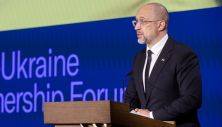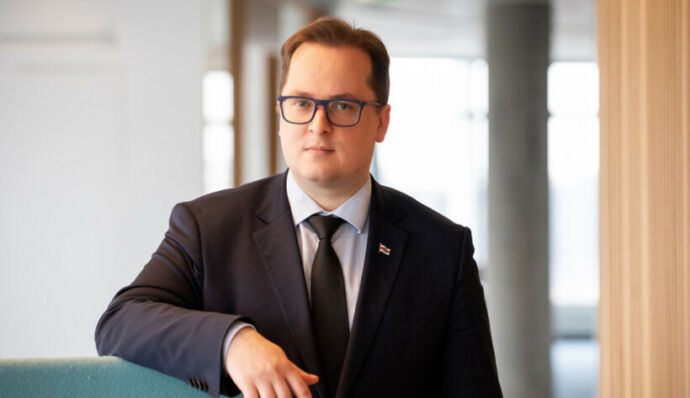On August 9, 2020, presidential elections took place in Belarus. According to the Belarusian authorities, they were won by Alexander Lukashenko, and the second place with a gap of 10% was taken by opposition leader Svitlana Tikhanovska. According to the opposition and a number of analysts, the results were rigged and Tikhanovska won the election.
Following the announcement of the election results in Belarus, protests began, which were suppressed by security forces. On August 11, 2020, Tikhanovska was forced to leave the country and settle in Lithuania. Other members of the opposition also left Belarus.
The European Union, Canada, the United States, Britain, Ukraine and a number of other countries have refused to recognize Lukashenko as a legitimate president.
The political situation has been exacerbated in recent months by the migration crisis on Belarus’ border with Poland and Lithuania. Many believe that “migration blackmail” is another provocation by Lukashenko, coordinated by the Kremlin.
We are talking about the situation in Belarus, the actions of the opposition and the role of the world community in solving the country’s problems with Franak Viačorka, a Belarusian journalist, media expert, and adviser to the Belarusian opposition leader Svitlana Tikhanovskaya.
Saken Aymurzaev hosts the program.
– How do you and Svitlana Tikhanovskaya’s staff see the reasons for this autumn aggravation of Lukashenko’s actions?
– Lukashenko’s aggravation did not begin in the fall, but last August, when he lost the election. And everything that has happened in the last 12 months has the same nature. There is a politician who is losing control of the situation, insecure, who will not make people love him.
And if at first his problem was the Belarusians who refused to leave the squares, now he has a problem with all the neighbors who do not want to love and accept Lukashenko as he is.
What we are seeing now at the border is an attempt to take revenge on Lithuania, Poland and the European Union for supporting the democratic movement in Belarus. It is also an attempt to somehow split the European community, and to achieve such a strange way of recognizing Lukashenko, to give him at least a little legitimacy, which he lost last year.
The fact that he has now received a call from Merkel (the acting Chancellor of the Federal Republic of Germany called Lukashenko on November 15 and 17, ed.) Is a great success for him: not that I was noticed, but that I was talked to for another 50 minutes.
– Do you think such calls from European leaders are appropriate, or is it just to feed the beast, conditionally?
– Of course, we do not consider it normal. He feeds on it. Through such calls, the beast receives a charge of vigor, a sense of impunity. And he understands: aha, blackmail works, so, following the migrants, we will engage in drug blackmail, as he promised. Or blackmail a nuclear power plant – and how will a nuclear power plant explode?
– And European governments are somehow consulting with Tikhanovskaya, with her team, how to react to what is happening?
– It was Merkel’s communication with Lukashenko that was, rather, the initiative of the Chancellor herself. Then they explained their strategy, their tactics. They assured that there would be no recognition of Lukashenko, a change in policy should not be expected. They are now trying to resolve this urgent issue. Issues of people’s lives.
– And what civilized solution to this migration crisis do you think?
– Death must be stopped, cruelty, lawlessness, violence must be stopped. But immediately after that, we must start forcing Lukashenko to release political prisoners and talk about new elections.
As long as there are no new elections, no crisis has been resolved.
– What are the ideas in this regard, apart from traditional sanctions?
– Of course, there are ideas from the Belarusians, but there are very few opportunities for action. When people realize that they can go out, they will not be beaten and imprisoned for 5 years, tens and hundreds of thousands will come out at once.
If we talk about the reaction from the outside, apart from pressure, sanctions, isolation, there are not many tools. And they are mostly symbolic. For example, to expel Lukashenko from Interpol, to deprive him of the opportunity to participate in international sporting events, not to receive his ambassadors, to isolate him. The most important thing is not to feed the regime, not to give it money, because money creates a sense of impunity that we are struggling with.
And international courts. Why did the best minds in the world create them for decades so that they don’t work now? This is the case when the case is to be considered by international tribunals, but this requires political will, and political will is probably not enough now.
– Belarus’ immediate neighbors are Poland and Lithuania. What is their reaction? Are there any risks that at some point they will say: how are you bored with your “Father”?
– Lukashenko has an amazing ability to unite people against himself. Even those people who were on his side for some time, they have already left, they have left.
He united Belarusians against himself. People of all ages, all generations, worldviews, professions were on the squares in Minsk and protested – it was unique, even unexpected for me personally.
He united his neighbors against himself, the world community. There are a couple of leaders left who still communicate with him. And Ukraine, Lithuania, Poland, Latvia – all speak with one voice and thus give us confidence that everything is not in vain.
Yes, there is fatigue, of course. In Poland and Lithuania, not everyone understands why Lukashenko is behaving this way. But on the other hand, after the migration crisis, when it simply became their security issue, I think that all doubts have disappeared.
– In your opinion, is there a Russian trace in the current migration situation?
– It is clear that the Kremlin and Lukashenko are somehow coordinating their actions. It is clear that it is important for Lukashenko to have the Kremlin behind him, to hide behind it.
It is advantageous for him to say that all this is decided in the Kremlin, and I am such a teddy bear, I am controlled. This is beneficial for Lukashenko.
On the other hand, Putin benefits from this whole situation, because it is beating Europe, showing its probably failure or indecision. It helps to give a little recognition to Lukashenko. And if before Putin was the only one talking to an outcast, now he is not the only one, now even Merkel is calling. This, of course, simplifies [Lukashenko’s] life a bit and improves his reputation. But to say that Putin will always fit into the adventure is unlikely.
– What should Ukraine do in this critical situation for migrants?
– First, to coordinate with the European Union, with Belarus’ neighbors. To act together, to support all the decisions of the European Union. Ukraine should also consider joining the sanctions. Because it depends on Ukraine how effective the sanctions will be. This is electricity, this is oil products, this is bitumen, many other supply lines.
– On November 23, the Verkhovna Rada committees will discuss the issues of Belarusians who moved to Ukraine, live here, their legalization, normalization of their lives. What would you expect from the Ukrainian authorities in this context, in the adaptation of, say, your compatriots, friends here in Ukraine?
– Ukraine is the first country for many Belarusians who are now leaving their country. Then they either stay or move to EU countries. Many Belarusians settle mainly in Kyiv and Lviv, some in Chernihiv and Odesa.
It is very important that Belarusians can get documents quickly and continue working. Talks are about legalization, employment permits, opportunities and access to social and medical security.
This situation is unusual. Of course, the situation is critical. Therefore, we hope that the Ukrainian government and parliament will be flexible and helpful. First of all, in terms of access to assistance and the opportunity to work in the Ukrainian market.
– Is there any information when Svitlana Tikhanovska and Volodymyr Zelenskyy may meet?
– I think that this is a question to the President of Ukraine Zelensky. When there is such a desire, of course, such a meeting will take place.
– But are you, as a team, ready for such an invitation?
– Absolutely ready. We are ready to discuss, cooperate and work together with Ukraine.










